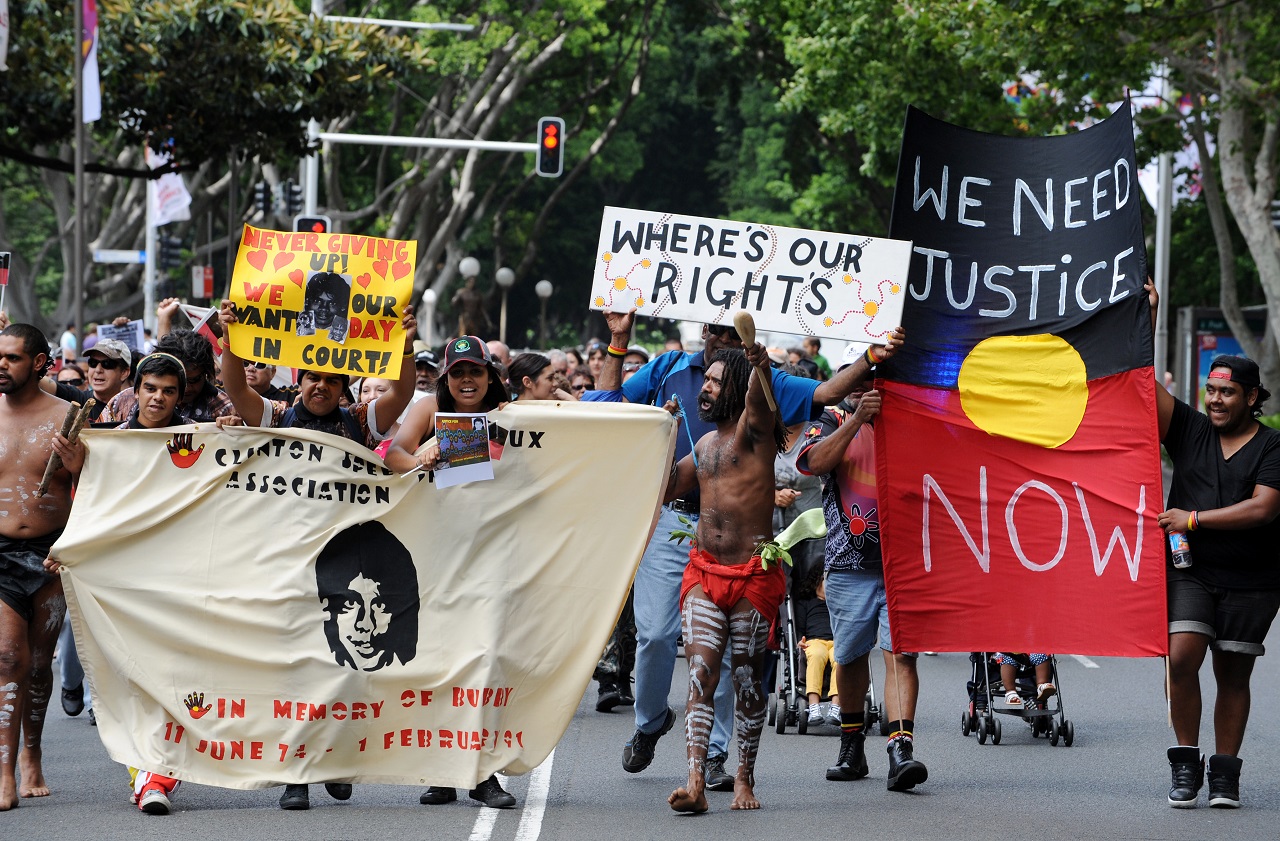The families of three Aboriginal children who disappeared from a small, remote town in New South Wales in the 1990s will learn this week if the alleged killer will face a retrial.
The man in his 50s, who cannot be named for legal reasons, was previously acquitted in separate trials of murdering two of the children: four-year-old Evelyn Greenup; and 16-year-old Clinton Speedy-Duroux.
No one has ever been charged with the murder of 16-year-old Colleen Walker.
The children all disappeared from Bowraville in the space of five months between 1990 and 1991 from houses on the same street in an area known as The Mission.
NSW Police have acknowledged the original investigation was botched and hampered by institutional racism.
During a legal saga stretching across 28 years, there have been two police investigations and two trials, three coronial inquests, a parliamentary inquiry. No one has been successfully prosecuted.
Until recently, the case did not receive widespread attention from the media or Australian public.
What is double jeopardy and why is it important?
In 2006, New South Wales became the first state in Australia to introduce a new exception to the long-standing legal principle which prevents people being tried for the same crime twice.
The NSW Court of Criminal Appeal can now quash an acquittal and order a retrial when “fresh and compelling” evidence is produced or if it can be proved that the integrity of the trial was “tainted”.
The reforms apply to serious crimes such as murder, manslaughter, gang rape or large-scale drug trafficking but double jeopardy remains in force for lesser offences.
This case marks the first time the court has been asked to make such a decision.

It's been a long campaign for the families. Source: AAP
What do the families say?
Over two decades the families have together waged a formidable campaign petitioning the NSW director of public prosecutions and the state attorney general for justice.
The appeal judges have been considering their historic decision to order a retrial for 10 months.
The length of time and lack of communication from the court has caused the families grief and stress.
Karla McGrady, a cousin of Clinton Speedy-Duoux, said it has been an anxious and exhausting time.
“It’s pretty much D-Day,” she told NITV News.
“We waited a really, really, really long time for this day but it doesn’t make it any easier.”
The ordeal has been “exhausting” but what gives the families hope is the prospect that a court will examine all three cases together.
“This is the only way we’re ever going to see justice for our kids,” Ms McGrady said.
What happens next?
It has been almost 28 years since the children disappeared. The families of all three children are united by once wish: that the accused man be tried for the three murders together.
This could mean evidence about potential similarities and the man’s links to each of the deaths may be heard before the same court.
Prosecutors argued that evidence about Colleen Walker’s disappearance has never been heard in court and is therefore both fresh and compelling.
Defence lawyers said the evidence does not pass this test, the length of time which has passed since the murders and media coverage mean it would not be in the interests of justice to order a retrial.
The NSW Supreme Court will deliver its judgement on Thursday.
If there were a new trial, the accused man may be acquitted again and shown to be not guilty of these murders or his guilt could finally be determined on the basis of all relevant evidence.


